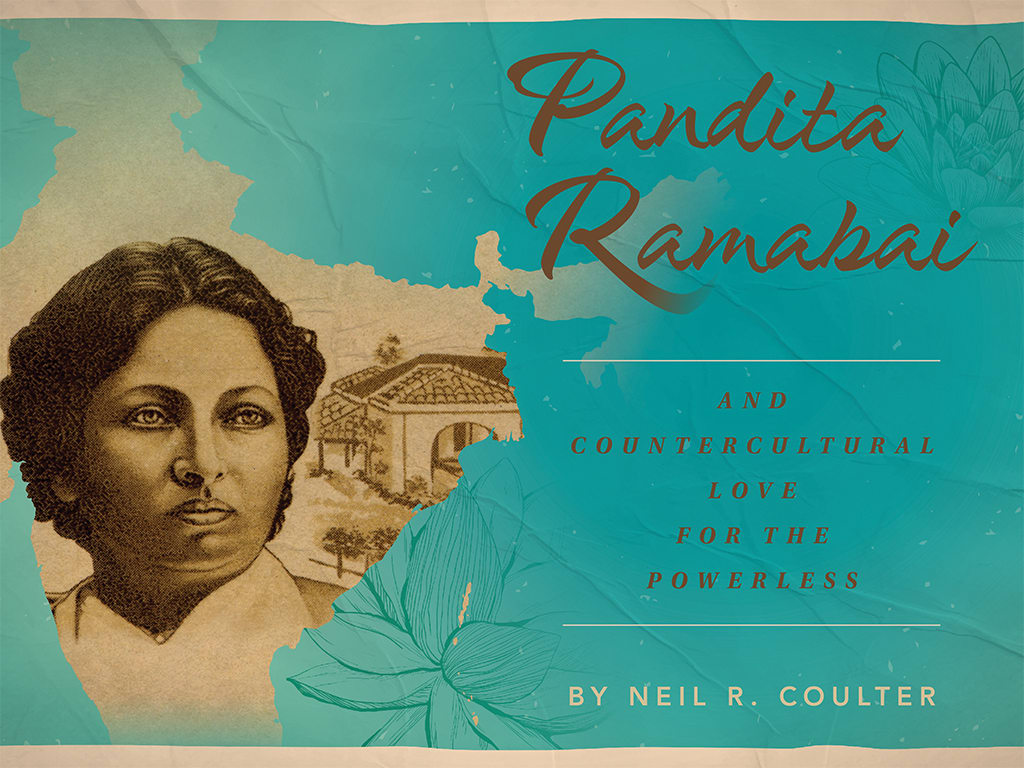Pandita Ramabai and Countercultural Love for the Powerless

Fulfilling our responsibility to love well often directs us to act counterculturally in a society that more typically rewards self-centered actions. Loving well means taking seriously the Bible’s many commands to care for widows and orphans (Exod 22:22; Deut 14:29; Isa 1:17; Zech 7:9–10; Jas 1:27). Throughout history, exemplars of the faith step outside of cultural expectations and stand up for the powerless through the love of Christ. Over a century ago, Ramabai Dongre overcame personal tragedies and applied her education and status to improve life for women and children in India.
Born to a scholarly, high-caste Hindu family in 1858, Ramabai always understood the value of education. Against cultural expectations, Ramabai’s father taught her Sanskrit—a rare education for a woman at that time. But when Ramabai was sixteen, tragedy struck: her parents died during a famine. Just a few years later, her brother died. In 1880, she married outside of her caste and her region, which was regarded as improper. Less than two years after the wedding, her husband died. Thus, at age 23, Ramabai was fatherless, brotherless, widowed, and caring for her infant daughter as a single mother.
At that moment, when she was as powerless as a woman could be in that society, she applied her one remaining tool—her education—to speak out about the unfair, unequal treatment of women in India. Her skill in Sanskrit led to an invitation to Calcutta, where she received the title Pandita (a specialist in Hindu knowledge and religious writings). She used her influence to bring international attention to the treatment of women and children in India, and she started the Arya Women’s Society to promote women’s education and eliminate child marriage. In 1883, she traveled to England, hoping to attend medical school, become a doctor, and bring fairer health care to women in India. Her progressive hearing loss closed that door to her. But what Ramabai lost while in England paled in comparison to what she gained. Burdened by increasing frustration with Hinduism’s poor regard for women and inspired by the compassion of Christians she met, Ramabai accepted Jesus Christ.
From England, Ramabai traveled to North America. There she wrote her first English-language book. She also met fellow Christians and social reformers Frances Willard and Harriet Tubman. Funds Ramabai raised through speaking engagements and book sales paid for the opening of a school in India for child widows (girls who were married very young and left destitute when their older husbands died) when she returned in 1889. Through the vibrancy of Ramabai’s Christian witness, numerous students at the school also chose to follow Jesus—which brought severe criticism from Hindus. By 1900, the school sheltered 1,500 children, widows, orphans, and others without a voice in society. Ramabai applied her linguistic skill to translating the Bible into her first language of Marathi. Her days were busy! “People must not only hear about the kingdom of God,” she said, “but must see it in actual operation, on a small scale perhaps and in imperfect form, but a real demonstration nonetheless.”
Ramabai ensured that her daughter, Manorama, received an excellent education, and she assumed that Manorama would someday take over her work. Sadly, Manorama died in 1921, and less than a year later, Ramabai also died. Yet her example lives on. Ramabai’s life of loving service continues to inspire us today. Following Jesus in a life of loving well will sometimes mean choosing differently from society’s norms. But caring for the powerless in our midst is not optional.
Though God often led her through dark valleys of personal tragedy, Pandita Ramabai continually stepped across cultural boundaries to model a life of serving others so that every person she encountered might know the love of God. “The only thing that must be done by me,” she wrote, “is to tell people of Him, and of His love for sinners, and His great power to save them.”
About the Contributors

Neil R. Coulter
Neil R. Coulter completed degrees in music performance and ethnomusicology from Wheaton College and Kent State University. He and his family lived in Papua New Guinea for twelve years, where Neil served as an ethnomusicology and arts consultant for Wycliffe Bible Translators. In 2015, he helped design and launch the PhD in World Arts at Dallas International University. He teaches doctoral courses in theory and ethnography at DIU’s Center for Excellence in World Arts. At DTS, he teaches about art, literature, film, and theology, and he is senior writer and editor of DTS Magazine. Neil is married to Joyce, and they have three sons.

